MVD Points in Arizona
How many points is my Arizona traffic violation? How many points will go on my driving record for this violation? How many points do I get for this ticket in Arizona? How many points can I get before Arizona Motor Vehicles Division (MVD) suspends my driver’s license? What are points? How many points can I have on my license? These are common questions that people ask me almost every day. I wanted to take a moment to answer these questions and list a few common violations and the accompanying points that MVD assesses to an individual’s driving record for those violations.
Arizona law requires the Motor Vehicles Division (MVD) to assess points to a motorist for judgments or convictions for certain violations of Arizona law. These points go on your Motor Vehicle Record (MVR). It is the accumulation of points that dictates action by MVD. The number of points required for MVD to take action against your driving privilege may depend on your age and driving record. For example if you are under 18 years of age the number of points you can accumulate before MVD suspends your driving privilege is different than if you are 21 years of age. Also certain violations require the attendance of Traffic Survival School (TSS). Once you have attended TSS, if you receive any points in the following 24 months MVD will suspend your driving privileges regardless of the total number of points on your Motor Vehicle Record (MVR) or the number of previous violations. (see Something to Consider Before you Plead Responsible to a Red Light Violation in Arizona in this blog) also (see Defensive Driving School vs. Traffic Survival School in this blog)
Here are a few common violations and the points associated with being found responsible or guilty for these violations:
Violation / Description / Points
28-644A1 / Failure to Obey a Traffic Control Device / 2
28-645A3a / Failure to Stop for a Red Light / 2
28-693 / Reckless Driving / 8
28-695 Aggressive Driving 8
28-701A / Speed not Reasonable and Prudent / 3
28-701.02 / Excessive Speed / 3
28-708A / Racing on Highways / 8
28-730A / Following too Closely / 2
28-797E / Speed Greater than 15 MPH in a School Crossing / 2
28-1381A1 / DUI / 8
28-1381A2 / DUI .08% or more / 8
28-1381A3 / DUI Drugs / 8
28-1382 / Extreme DUI / 8
THE LAW OFFICE OF KARL A. MUELLER, PLC
Website: www.AzTrialLawyer.com
Call (602) 697-8761
Free 24 Hour Consultations
August 21, 2009
August 16, 2009
How Felonies are Charged in Arizona
How Felonies are Charged in Arizona
How is a felony charged? Will I be arrested? What can I expect? These are questions I often get from people who have been arrested for a felony and are still awaiting charges. They have no idea what to expect, and many unanswered questions about the process of how felony charges are filed. It is understandably very unsettling to have felony charges looming in the near future especially when you have no idea what to expect. People worry that one day soon the police are going to show up at their place of work and haul them off to jail. Here is a brief explanation of how felonies are charge in Arizona.
After the investigating law enforcement agency believes they have accumulated enough evidence to support felony charges, that agency will submit their investigation and recommended charges to the appropriate prosecutorial agency. A prosecutor reviews the submittal and then makes a decision as to what charges to file and what process to bring those charges. A felony case is charged by either the grand jury or a criminal complaint.
Grand Jury
If a case goes forward by way of the grand jury, the prosecutor presents a summary of the evidence to a grand jury. The grand jury then decides whether or not there is enough evidence to go forward. If the grand jury feels there is enough evidence that probable cause exists, then the grand jury issues what is called a “true bill” and an indictment is issued. The grand jury indictment is then filed with the court.
Complaint
If a case goes forward by way of complaint, a prosecutor reviews the recommended charges and a complaint is filed under oath by a peace officer alleging that an offense occurred and the person charged committed the offense. The defendant is then typically served with a criminal summons to appear in court on the charges. A prosecutor can elect to proceed by requesting a warrant, but a summons is the preferred method. If a defendant fails to appear and honor the summons, the trial court will issue a warrant for the defendant’s arrest. A defendant who is charged by complaint is entitled to a preliminary hearing for a determination of probable cause by a magistrate before the prosecution can proceed with the charges.
In contrast, a defendant charged by indictment is not entitled to a preliminary hearing because the grand jury has already made the finding of probable cause.” For more on the consequences of a felony conviction (see Consequences of a Felony Conviction in this blog)
THE LAW OFFICE OF KARL A. MUELLER, PLC
Website: www.AzTrialLawyer.com
Call (602) 697-8761
Free 24 Hour Consultations
How is a felony charged? Will I be arrested? What can I expect? These are questions I often get from people who have been arrested for a felony and are still awaiting charges. They have no idea what to expect, and many unanswered questions about the process of how felony charges are filed. It is understandably very unsettling to have felony charges looming in the near future especially when you have no idea what to expect. People worry that one day soon the police are going to show up at their place of work and haul them off to jail. Here is a brief explanation of how felonies are charge in Arizona.
After the investigating law enforcement agency believes they have accumulated enough evidence to support felony charges, that agency will submit their investigation and recommended charges to the appropriate prosecutorial agency. A prosecutor reviews the submittal and then makes a decision as to what charges to file and what process to bring those charges. A felony case is charged by either the grand jury or a criminal complaint.
Grand Jury
If a case goes forward by way of the grand jury, the prosecutor presents a summary of the evidence to a grand jury. The grand jury then decides whether or not there is enough evidence to go forward. If the grand jury feels there is enough evidence that probable cause exists, then the grand jury issues what is called a “true bill” and an indictment is issued. The grand jury indictment is then filed with the court.
Complaint
If a case goes forward by way of complaint, a prosecutor reviews the recommended charges and a complaint is filed under oath by a peace officer alleging that an offense occurred and the person charged committed the offense. The defendant is then typically served with a criminal summons to appear in court on the charges. A prosecutor can elect to proceed by requesting a warrant, but a summons is the preferred method. If a defendant fails to appear and honor the summons, the trial court will issue a warrant for the defendant’s arrest. A defendant who is charged by complaint is entitled to a preliminary hearing for a determination of probable cause by a magistrate before the prosecution can proceed with the charges.
In contrast, a defendant charged by indictment is not entitled to a preliminary hearing because the grand jury has already made the finding of probable cause.” For more on the consequences of a felony conviction (see Consequences of a Felony Conviction in this blog)
THE LAW OFFICE OF KARL A. MUELLER, PLC
Website: www.AzTrialLawyer.com
Call (602) 697-8761
Free 24 Hour Consultations
August 10, 2009
Do I Need a Lawyer for a Criminal Speeding Charge?
Do I Need a Lawyer for a Criminal Speeding Charge?
You may be surprised to find yourself charged with a crime for speeding. Many Arizona drivers are unaware that such a crime exits. If you would like a detailed definition and explanation of Criminal Speeding (see Consequences of Excessive (Criminal) Speeding in this blog)
Basically, if the State can prove that you were in excess of 85 mph or speeding 20 mph or more over the posted speed limit, you can be charged with a class 3 misdemeanor in Arizona subjecting you to a criminal conviction and possible jail time. For a detailed explanation of misdemeanors in Arizona (see Misdemeanors in Arizona in this blog)
Benefits of Representation on a Criminal Speeding Charge
Because you are charged with a crime, you are entitled to all the rights and protections afforded any citizen charged with a criminal offense. The State must prove your Criminal Speeding charge with the same burden of proof necessary to prove any type of criminal case. Unlike a normal civil traffic speeding violation (see The Difference Between Criminal Traffic Violations vs. Civil Traffic Violation in Arizona in this blog), you are entitled to a trial where the State must prove the offense beyond a reasonable doubt. The Arizona Rules of Criminal Procedure and the Arizona Rules of Evidence apply in this trial unlike a civil traffic violation. An experienced trial lawyer can be of great assistance to you at each of the various stages of a criminal proceeding. An experienced trial lawyer may be able to acquit you of the crime at trial, convince the prosecutor to dismiss the crime prior to trial, or reduce the charge to a civil violation.
There are many negative consequences of Criminal Speeding conviction that an experienced trial lawyer can help you avoid. With skilled representation you may be able to avoid consequences including:
Up to 30 days of jail time
Mandatory fines
Classes
Points accessed by Motor Vehicle Division (MVD) to your driving record
Potential suspension or revocation of your driver’s license
Higher insurance, cancellation, or denial of insurance
Conviction of a crime resulting in a criminal record
Effects on immigration status, visas, and passports
Probation
Community service
Having your vehicle impounded
THE LAW OFFICE OF KARL A. MUELLER, PLC
Website: www.AzTrialLawyer.com
Call (602) 697-8761
Free 24 Hour Consultations
You may be surprised to find yourself charged with a crime for speeding. Many Arizona drivers are unaware that such a crime exits. If you would like a detailed definition and explanation of Criminal Speeding (see Consequences of Excessive (Criminal) Speeding in this blog)
Basically, if the State can prove that you were in excess of 85 mph or speeding 20 mph or more over the posted speed limit, you can be charged with a class 3 misdemeanor in Arizona subjecting you to a criminal conviction and possible jail time. For a detailed explanation of misdemeanors in Arizona (see Misdemeanors in Arizona in this blog)
Benefits of Representation on a Criminal Speeding Charge
Because you are charged with a crime, you are entitled to all the rights and protections afforded any citizen charged with a criminal offense. The State must prove your Criminal Speeding charge with the same burden of proof necessary to prove any type of criminal case. Unlike a normal civil traffic speeding violation (see The Difference Between Criminal Traffic Violations vs. Civil Traffic Violation in Arizona in this blog), you are entitled to a trial where the State must prove the offense beyond a reasonable doubt. The Arizona Rules of Criminal Procedure and the Arizona Rules of Evidence apply in this trial unlike a civil traffic violation. An experienced trial lawyer can be of great assistance to you at each of the various stages of a criminal proceeding. An experienced trial lawyer may be able to acquit you of the crime at trial, convince the prosecutor to dismiss the crime prior to trial, or reduce the charge to a civil violation.
There are many negative consequences of Criminal Speeding conviction that an experienced trial lawyer can help you avoid. With skilled representation you may be able to avoid consequences including:
Up to 30 days of jail time
Mandatory fines
Classes
Points accessed by Motor Vehicle Division (MVD) to your driving record
Potential suspension or revocation of your driver’s license
Higher insurance, cancellation, or denial of insurance
Conviction of a crime resulting in a criminal record
Effects on immigration status, visas, and passports
Probation
Community service
Having your vehicle impounded
THE LAW OFFICE OF KARL A. MUELLER, PLC
Website: www.AzTrialLawyer.com
Call (602) 697-8761
Free 24 Hour Consultations
Subscribe to:
Comments (Atom)

.jpg)

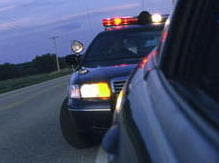.jpg)
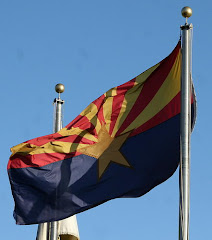.jpg)
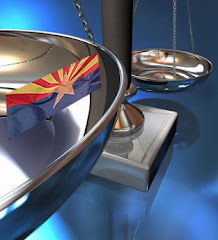.jpg)




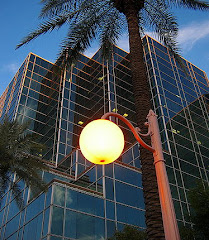.jpg)
.jpg)
.jpg)
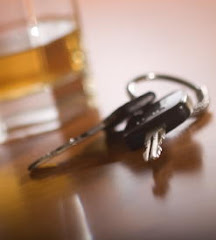.jpg)